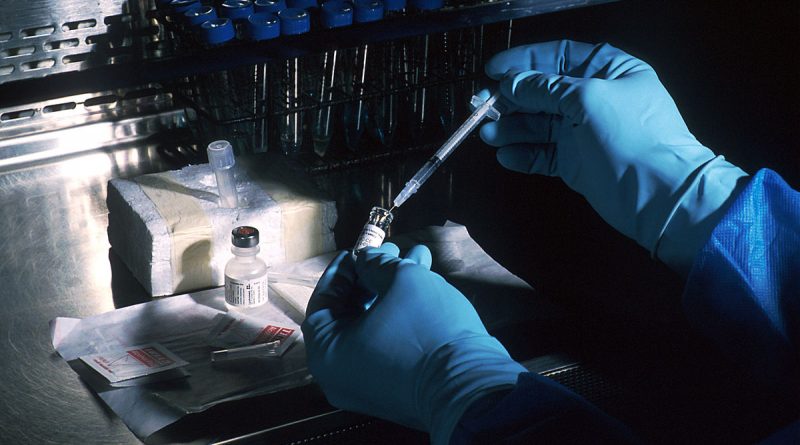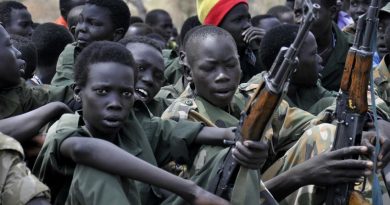Sinovac’s Efficacy Remains Unclear After Trials
Lauren-Marie Diawatan
Staff Writer
On April 11, 2021, the director of the Chinese Center for Disease Control and Prevention, Gao Fu, acknowledged that China’s domestically produced vaccines offer little protection against COVID-19, reports The Associated Press.
According to BBC News, Gao explained that the vaccine process could be improved by increasing the number of doses each person is given or by mixing different vaccines. However, he rescinded the comment in a statement to Global Times, a state-run media outlet, saying that all of the world’s vaccines, not just China’s, have varying protection rates. BBC News furthers that Gao emphasized that improving vaccine efficacy “is a question that needs to be considered by scientists around the world.” China has produced four different vaccines, and 100 million Chinese citizens have received an initial vaccine dose.
Sinovac is a major producer of China’s COVID-19 vaccines, reports BBC News. Sinovac’s vaccine, CoronaVac, exposes the body to the virus by injecting dead viral particles to avoid a disease response. Like the Oxford-AstraZeneca vaccine, CoronaVac can be refrigerated at 2-8 degrees Celsius, while Western vaccines Moderna and Pfizer must be kept at -20 degrees Celsius and -70 degrees Celsius, respectively.
In contrast to Sinovac’s inoculation method, Moderna and Pfizer are mRNA vaccines, injecting the patient with some of the virus’ genetic code to trigger the body into producing proteins to prepare the immune system to recognize and attack the virus itself. Associate Professor Luo Dahai of the Nanyang Technological University explains that CoronaVac’s traditional inoculation method is more successful in comparison to mRNA vaccines, which “are a new type of vaccine” with “currently no successful example of them being used in the population.”
Brazilian trials of Sinovac’s vaccine reported an efficacy rate of 50.7 percent, a rate that is barely above the established 50 percent threshold to receive approval from the World Health Organization, says The Economist. In contrast, a real-world trial only reported the vaccine to be 49.6 percent effective against symptomatic cases, falling to 35.1 percent when asymptomatic cases were included. However, results from later-stage trials in Turkey reported an efficacy of 83.5 percent. Bloomberg News states that while the vaccine’s effectiveness is barely above the WHO’s threshold, its 100 percent efficacy in moderate to severe coronavirus cases is highly valuable for a vaccine. The varying results between Brazil, Indonesia, and Turkey are difficult to compare due to the varying trial procedures, as well as the P.1 variant present in Brazil. It is unclear if CoronaVac could be used to reach herd immunity due to factors such as protection from virus transmission and different variants. Using a less effective vaccine requires more people to be vaccinated.
Reuters reports that a recent trial from Chile says that Sinovac was 67 percent effective against symptomatic infection and 80 percent effective against death. Chilean Vice Trade Minister Rodrigo Yanez said the trial results are “a game changer for the vaccine,” and he emphasized that it “ratifies quite graphically the discussion over its efficacy.” The trade minister made a deal with Sinovac to hold its clinical trials and buy 60 million doses of the drug over the next three years.
BBC News says that CoronaVac is only fully authorized by China. The highest importers of the vaccine in Asia are Indonesia, Malaysia, Thailand, Pakistan, and the Philippines, while in Latin America Brazil, Mexico, Colombia, and Ecuador have purchased the shot. In Africa, Zimbabwe, Somalia, Benin, Tunisia, and Somalia have already received shots from China.
On April 15, the World Health Organization-Europe vaccination expert Siddharta Datta reported that the WHO was communicating with Sinovac and considering establishing an emergency listing for their vaccines, Reuters reports. An emergency WHO listing is a preliminary condition of a vaccine purchase by the COVAX initiative, established to help poorer countries acquire vaccines. A decision for one of these vaccines could be made on April 26 according to a WHO review panel, followed by another meeting on May 3 if necessary.
Photo courtesy of Christian Emmer (CEBI at Copenhagen University)



